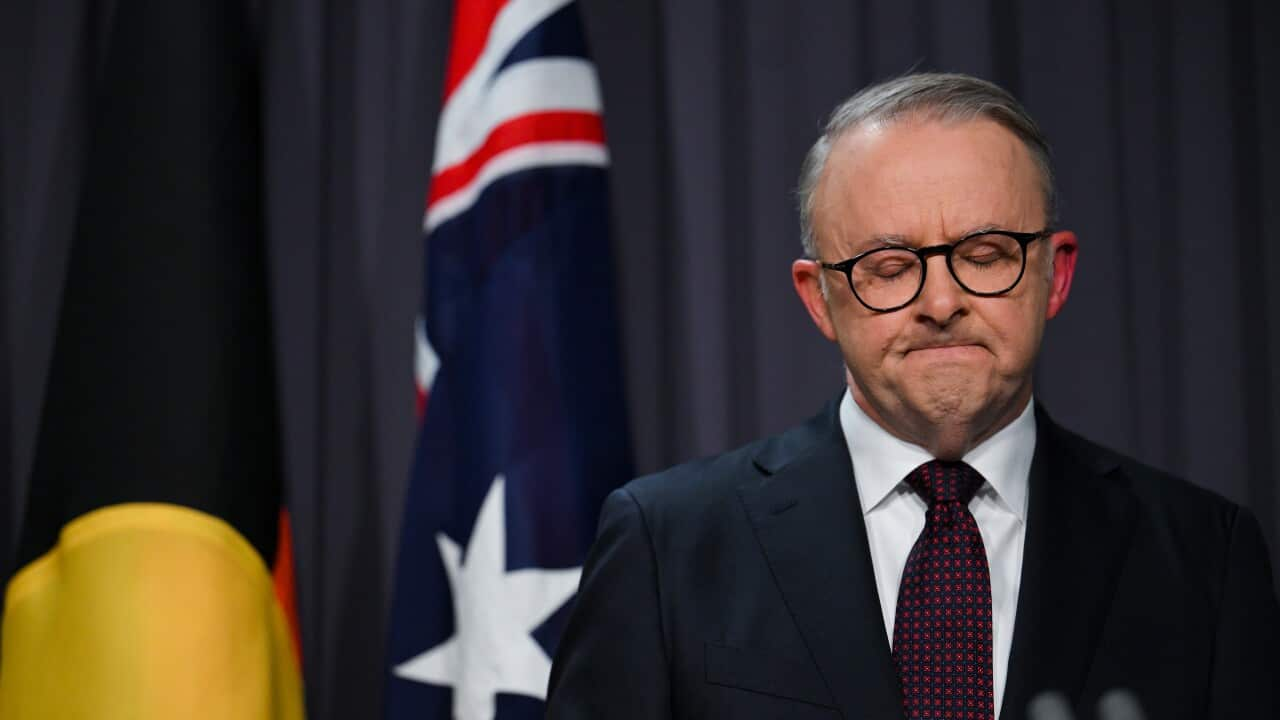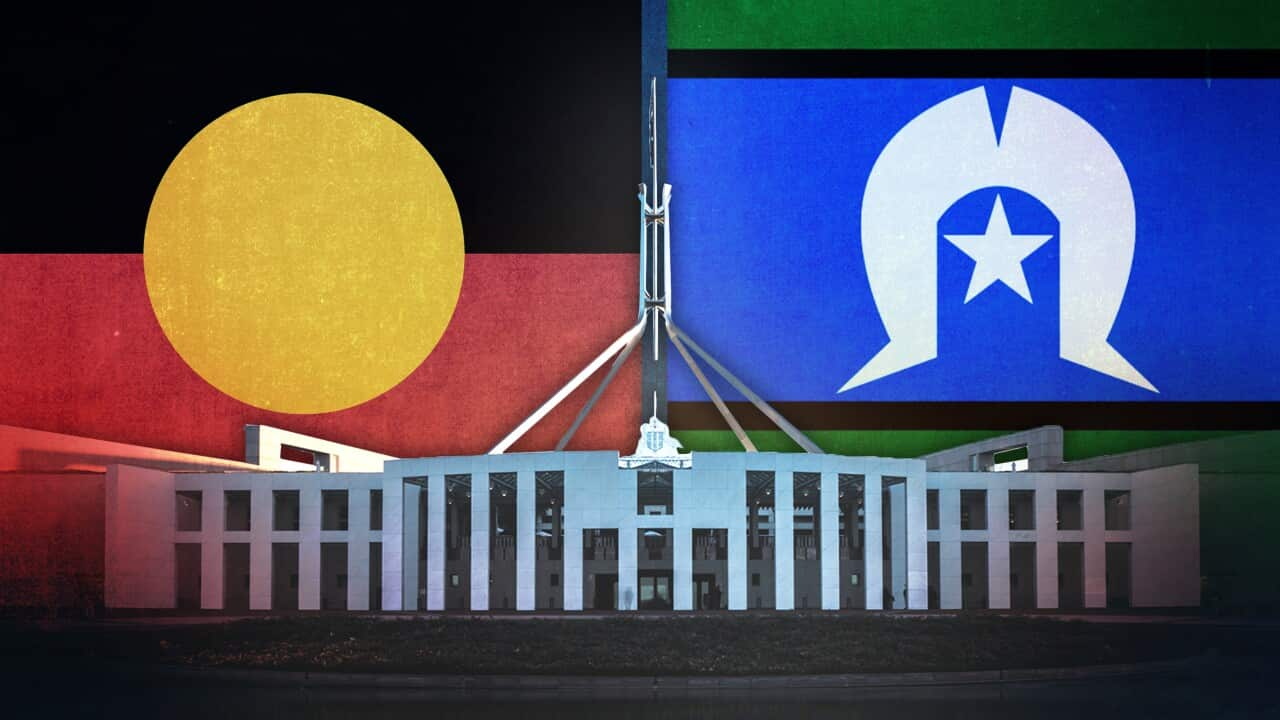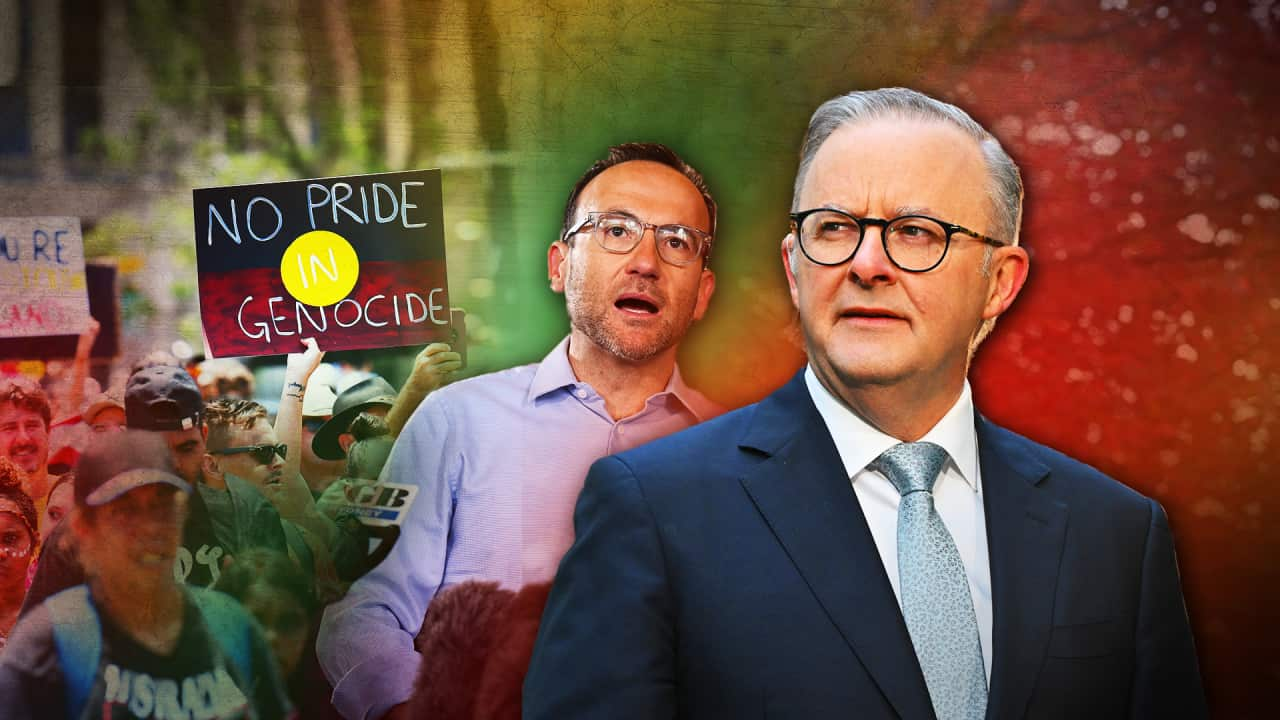KEY POINTS:
- The Voice defeat has thrown Labor's plans for Indigenous Australians into question.
- Indigenous Australians Minister Linda Burney insists work is ongoing to Close the Gap.
- The Greens, who called for Treaty and Truth before the Voice, want action.
"On behalf of the Australian Labor Party, I commit to the Uluru Statement From the Heart in full."
Anthony Albanese's first words on election night 2022 put his incoming government on a course first outlined in the dust of the Northern Territory five years earlier. That path, set out in the 2017 Uluru Statement, was clear: Voice, Treaty, and then Truth.
But less than 18 months after the prime minister-elect addressed that euphoric crowd in Sydney's Marrickville, Indigenous academic and leader
Every state, and m, had rejected the Voice. Albanese's commitment had fallen over at the first hurdle.
Many believed the bruising defeat could make Labor unable, or even unwilling, to pursue Indigenous rights. Fears abounded that a week of silence, announced by Indigenous leaders soon after the result became clear, could morph into a term of inaction from the government.
Speaking on referendum night, Albanese insisted the goals had not changed. "From tomorrow, we will continue to write the next chapter in that great Australian story. We will write it together, and reconciliation must be a part of that chapter," he said.
But a government which pinned so much of its first year, and arguably its political capital, on the Voice is now tight-lipped about what comes next. So too is the Opposition, which .
Letter in the inbox
In the days following the referendum, a letter hit Indigenous Australians Minister Linda Burney's inbox.
Pat Turner, head of a peak body of Indigenous groups, urged the government to seize the benefits of the campaign, which she said had brought the plight of Aboriginal and Torres Strait Islander people to the fore despite its ugliness.
Australians now accepted the need for government "greater practical action to address" inequality between Indigenous Australians and their non-Indigenous countrymen, Turner believed.

Pat Turner suggested a workaround. Source: AAP
"Demonstrating strong practical action will also support healing in the nation. It is also fair to say that many other initiatives to support Aboriginal and Torres Strait Islander wellbeing have been put on hold for the referendum campaign and there is an urgent need to accelerate action."
Voice-lite?
During the campaign, the Coalition flagged the prospect of legislating the Voice via parliament, though that would make its future also dependent on parliamentary support.
Albanese refused to commit to a 'Voice-lite' - a version not enshrined in the constitution - insisting he would respect the verdict delivered on 14 October. He wasn't about to legislate a body rejected by the voters at the ballot box.

Linda Burney insists she'll carry on after the Voice's defeat. Source: AAP / Lukas Coch
The government's response to Turner, if there was one at all, remains unclear.
But Burney insists it remains committed to the areas she outlined as the Voice's priorities: health, education, jobs, housing, and justice.
"The Albanese government is getting on with the job of delivering a better future for Aboriginal and Torres Strait Islander people," she said.
"We are working closely with the Coalition of Peaks and the Joint Council on Closing the Gap. The next Closing the Gap report will be released in mid-February. And we are working with First Nations communities on a range of significant reforms."
Those reforms include hundreds of millions of dollars committed to water security projects, extra dialysis units in remote hospitals, and boosts to the Central Australia Future Fund.
But the Voice's defeat prompted speculation about Burney's future. Would a woman who had spent her entire public life advocating for Indigenous Australians continue after such a comprehensive loss? She insists she isn't going anywhere; there's work to do.
"I am more determined than ever to pursue the issues that have been made clear ... [I'm] taking on board what's happened, but the fire of determination is well and truly there," she said.
Burney has spent the past few months consulting on the next steps, and Labor says work is continuing despite the Voice result.
'Used as a tool'
In October, Labor hoped for a seismic realignment in the way Australians engage with Indigenous history. Months later, the debate had returned to familiar territory; Coalition leader of Woolworths for removing Australia Day - Invasion Day or Survival Day to many Indigenous people - memorabilia from its shelves.
Perhaps emboldened by the result, a growing number of local councils have also scrapped traditional Welcome to Country ceremonies.
Despite campaigning vehemently - and successfully - against the Voice, the Coalition has offered little by way of their own solutions since.

Peter Dutton, pictured with Jacinta Nampijinpa Price, said Anthony Albanese had shown a "real arrogance" in the way he approached the referendum. Source: AAP / Jono Searle
Dutton and Opposition Indigenous Australians spokesperson Jacinta Nampijinpa Price have repeatedly called for an audit of federal spending on Indigenous groups, along with a royal commission into sexual abuse in Indigenous communities. Dutton wound back his pledge to hold a second referendum, this time purely on recognition of Indigenous people in the constitution, within days of the first one failing.
Darren Clark, an Alice Springs baker whose shop has allegedly been broken into more than 40 times, stood alongside Dutton and Price last year, urging for more federal attention on a crime wave he said was gripping his community.
Dutton was eager to frame Alice Springs as the epitome of Labor's misguided priorities, warning the "Canberra Voice" was never going to fix "the problems here on the ground".
Now, Clark feels the Coalition has ditched its pretences at solutions since October.
"I was used as a tool a bit there," Clark lamented to Sky News last week.
"I'd love to see Jacinta up here. I haven't seen her up here [since] ... There were Liberal politicians that came from Queensland to have a look around, only to squash the Voice. That was their agenda. Well, that's moved on now."
'Give them some wiggle room'
Albanese has not backed away from his commitment to the rest of the Uluru Statement, with $5.8 million allocated to a Makarrata commission - tasked with overseeing Treaty and Truth-telling processes. Just $608,000 had been spent by September.
The Greens compromised on their preferred model - Truth and Treaty before the Voice - , but urged the government to begin work on Makarrata as a contingency plan if the Voice failed.

Greens Indigenous Australians spokesperson Dorinda Cox. Source: AAP
Greens Indigenous Australians spokeswoman Dorinda Cox told SBS News she has not "seen or heard anything" on where the government is going next, but accepts it will need time to readjust after October's defeat.
"I want to give them some wiggle room. But I hope that coming back this year, they're now pivoting into having a plan on how they want to move forward," she said.
"The Truth and Reconciliation process in South Africa exposed apartheid in that country. The Truth and Reconciliation Commission in Canada talked about the residential schools [aimed at eradicating Indigenous culture]. The truth-telling in New Zealand's was able to get them to broker a treaty. These are all not just issues for Australia; these are also indigenous populations across the world.”
Cox insists the October result could have been different if more Australians had been given a deeper understanding of their country's history. "I learned about Captain Cook and when he landed a Botany Bay. No one talks about what that looked like from the shore for First Nations people," she said.
Cox believes there is genuine "goodwill" on the part of Albanese on Indigenous equality, but says annual political flare-ups over Australia Day make them wary of moving too fast.
"What we've had is a reluctance, because far-right movements and conservatives in this country continue to play culture wars," she said.
"The more that gets reignited, and the lack of education around truth-telling, [the more] this becomes a political football between the two majors [parties].”











